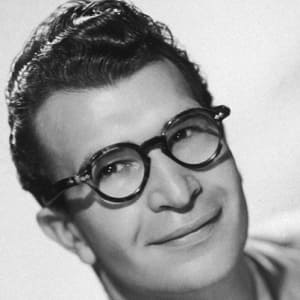
Jean-Louis Barrault
Jean-Louis Barrault was a 20th century icon of French film and theater, known for his work as an actor, mime and director.
Synopsis
Born in Le Vésinet, France, on September 8, 1910, Jean-Louis Barrault studied acting and mime, turning to a career in film. He was featured in many projects before starring in the classic Les Enfants du Paradis (1945). He and actress Madeleine Renaud married and formed their own theater production company, with Barrault serving as performer and director. He died on January 22, 1994.
Theatrical and Film Career
Actor and director Jean-Louis Barrault was born on September 8, 1910, in Le Vésinet, France, and was an important figure in French theater. The son of a pharmacist, Barrault decided early on to pursue a career in the arts. He studied acting under Charles Dullin at the Theatre de l'Atelier. In 1931, he made his stage debut in a production of Volpone at Dullin's theater.
With Dullin, Barrault learned about the art of pantomime. He also began to branch out creatively, creating his own theater adaptation (a pantomime play) of the William Faulkner novel As I Lay Dying in 1935. Around this time, Barrault appeared in his first film, Les Beaux Jours. His most famous movie role came in 1944's Les Enfants du Paradis, directed by Marcel Carné. As the mime Baptiste, Barrault won international acclaim.
In 1940, Barrault married actress Madeleine Renaud. He joined Renaud at the Comedie Francaise, a traditional French theater. With the Comédie-Française, Barrault played Hamlet, among other roles. Seeking new outlets for their creative work, Barrault and his wife founded their own theater group around 1946. Barrault took on many roles in this new theatrical group, including directing, producing and acting. When the couple's theatrical company received government support in the late 1950s, they moved it to the Theatre de l'Odeon. Renamed the Theatre de France, the troupe prospered under this new arrangement.
For his theatrical efforts, Barrault is credited with bringing new life to French theater after World War II. He was a master of both classic and avant-garde theater, and helped introduce such playwrights as Eugene Ionesco, Jean Genet and Samuel Beckett to French audiences.
In 1968, Barrault experienced a professional setback after the student protests in Paris. He had allowed some of the demonstrators to use his theater, and this action upset the French government. As a result, Barrault lost his theater and his financial backing. He continued to dedicate himself to theatrical work, albeit with a smaller budget. After some time, Barrault and his troupe settled into their new home at the Theatre du Rond Point.
Final Years
Barrault continued to work at his Parisian theater until 1992. He died two years later, on January 22, 1994, at his home in Paris. He reportedly had a heart attack in his sleep. After his death, Barrault was praised for his artistic contributions. Jacques Toubon, France's culture minister, told the Los Angeles Times that the famed actor-director "held high the flag of theater and the flag of France in his triumphant tours abroad," adding that Barrault had a "unique mixture of subtlety and power, of intelligence and energy."
Throughout his life, Barrault wrote a number of books about the theater and his own life, and these works continue to provide insight and information on his innovative and imaginative theatrical talent.




